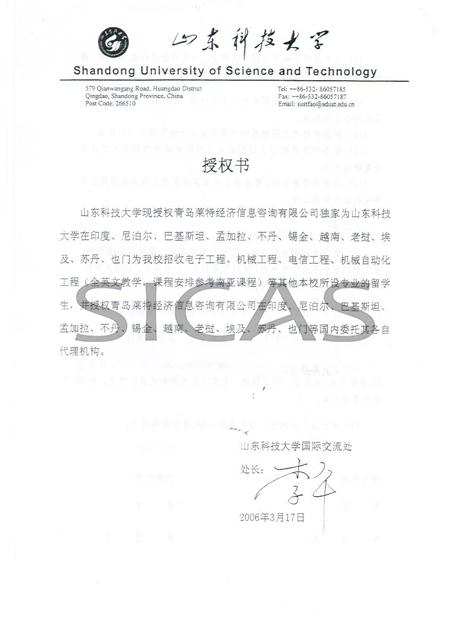Communications Engineering (Telecommunications)
1. Education Objectives
The educational objectives of Communications Engineering specialty are to train a workforce that is skilled, knowledgeable, and able to meet the needs of the industry today and well into the future. As future communications engineers, students will be concerned with the design of such networks and consider all hardware, software and firmware functions. Students will be involved in the implementation of protocols for the transmission of data, the detection and correction of transmission errors, the sharing of communications capacity on high-speed media, and the routing of data to specific destinations within a network, and students can use the principles and theories of communications to solve technical problems in research and application.
2. Pattern and length of study
The students need four years to finish all theoretical and practical trainings needed for a qualified communications engineer. After two years of fundamental course work, the students are arranged into different research groups while taking professional courses. Practical projects driven studies are encouraged and supported by combing course work with research and development.
2. Main Courses
The Communications Engineering specialty program provides training in wireless data systems, and wireless applications, signal processing , IP traffic networking, micro-controller ,embedded systems, communication systems, electric circuit, simulation electronic technology, numeral electronic technology, high frequency electronic circuit, signal and system, electromagnetic field ,electromagnetic wave, digital signal processing, mobile communications, etc.
3.What Can Students Do with a Major in Communications Engineering? (Employment Perspectives)
With a solid foundation gained during four years of study and internship, students may be employed in all sorts of communications and electronic related industries upon graduation:
(1) Information acquirement and security related companies, such as digital camera producing companies, information security related companies, security department in bank and other companies, security department in governments, etc.
(2) Information transmission related companies, such as communications equipment manufacturing companies (cell phone manufacturing companies, digital TV manufacturing companies), communication network operator companies, multimedia communications companies, etc.
(3) Information processing related companies, such as Internet service providers (ISP), consumer electronic companies. They can also move into other areas such as entrepreneurship and consulting. Another developing opportunity is in sales engineering and technical service. This involves the service and testing functions for various types of equipment in the industry.
4. Further Studies
Applicants with bachelor's degrees in Communications Engineering enjoy an advantage
when applying for a master's degree program. Some undergraduates are admitted to master's degree program, those who have excellent performance during undergraduate study could be excused from examinations and directly work for a master’s degree.








